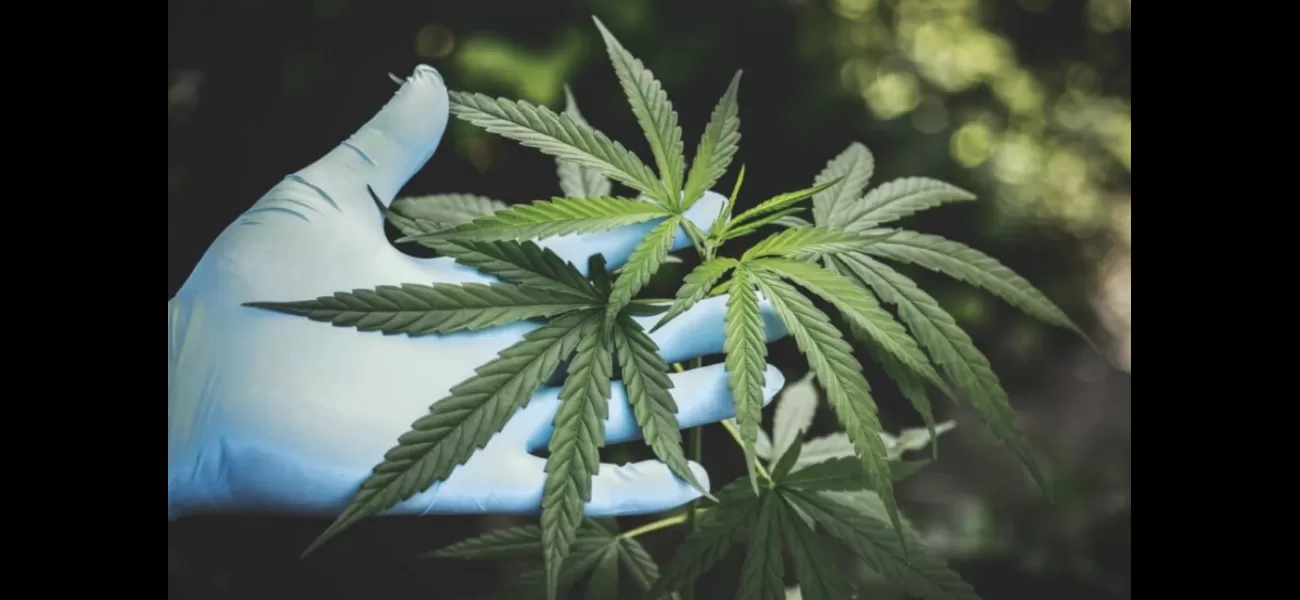DEA wants to loosen regulations on marijuana and change its classification to a less harmful drug.
Changing the classification of cannabis would lead to more research on its medical uses and the possibility of pharmaceutical sales.
May 2nd 2024.

The U.S. Drug Enforcement Administration has made a groundbreaking proposal to reclassify marijuana as a less dangerous drug, potentially changing drug policies across the nation. This proposal is still subject to review by the White House Office of Management and Budget, but if approved, it would acknowledge the medical benefits of cannabis and recognize its low potential for abuse compared to drugs like heroin and LSD. In a statement, Justice Department Director of Public Affairs Xochitl Hinojosa revealed that the Attorney General has put forth a plan to reclassify marijuana from Schedule I to Schedule III, beginning a formal rulemaking process as outlined by Congress in the Controlled Substances Act.
Once the proposal is approved by the White House, the DEA, which is a part of the Department of Justice, will seek public input before officially moving marijuana to Schedule III. This would put it in the same category as ketamine and some steroids, following a recommendation from the federal Health and Human Services Department. After the public comment period and review by an administrative judge, the final ruling will be published.
Since 1971, marijuana has been classified as a Schedule I drug, meaning it is deemed to have no medical use and a high potential for abuse. In contrast, Schedule III substances include commonly used medications like Tylenol with codeine, as well as steroids and testosterone. Reclassifying marijuana would allow for further research on its potential medical benefits and potentially open up opportunities for pharmaceutical companies to become involved in its sale and distribution in states where it is legal.
In addition, rescheduling marijuana would also relieve tax burdens for businesses operating in states where the drug is legal. Under current laws, legal cannabis companies are unable to deduct ordinary business expenses, but reclassifying marijuana could eliminate this issue. However, there are critics of the proposal, such as former DEA Deputy Administrator Jack Riley, who argue that it is unnecessary and raise concerns about potential harmful side effects. They fear that marijuana may act as a "gateway drug," leading to the use of other, more dangerous substances. Others, like Kevin Sabet, President and CEO of Smart Approaches to Marijuana and a former Obama administration adviser, believe that the decision is the result of a politicized process and will have a negative impact on young people, who may be influenced by attractive advertising and promotion of the drug.
Despite these concerns, supporters argue that marijuana should be treated similarly to alcohol and that its current classification as a Schedule I drug is outdated. Senate Majority Leader Chuck Schumer expressed his support for the proposal, saying that while it is a positive step, more must be done to end the federal prohibition on cannabis and address the harm caused by the War on Drugs. This move has been years in the making, with President Joe Biden previously working with the Department of Health and Human Services to review marijuana's classification in 2022. It was even mentioned in his State of the Union address in 2024, where he stated that no one should be jailed for using or possessing marijuana.
With the increasing acceptance and decriminalization of marijuana, particularly among younger people, many believe that this decision by the DEA could help President Biden secure the White House in the highly competitive 2024 election. In fact, a 2023 Gallup poll found that 70% of adults support marijuana legalization, a significant increase from the approximately 30% who supported it in 2000. As the proposal moves through the review process, the future of marijuana's classification and potential impact on drug policies and the pharmaceutical industry remains to be seen.
Once the proposal is approved by the White House, the DEA, which is a part of the Department of Justice, will seek public input before officially moving marijuana to Schedule III. This would put it in the same category as ketamine and some steroids, following a recommendation from the federal Health and Human Services Department. After the public comment period and review by an administrative judge, the final ruling will be published.
Since 1971, marijuana has been classified as a Schedule I drug, meaning it is deemed to have no medical use and a high potential for abuse. In contrast, Schedule III substances include commonly used medications like Tylenol with codeine, as well as steroids and testosterone. Reclassifying marijuana would allow for further research on its potential medical benefits and potentially open up opportunities for pharmaceutical companies to become involved in its sale and distribution in states where it is legal.
In addition, rescheduling marijuana would also relieve tax burdens for businesses operating in states where the drug is legal. Under current laws, legal cannabis companies are unable to deduct ordinary business expenses, but reclassifying marijuana could eliminate this issue. However, there are critics of the proposal, such as former DEA Deputy Administrator Jack Riley, who argue that it is unnecessary and raise concerns about potential harmful side effects. They fear that marijuana may act as a "gateway drug," leading to the use of other, more dangerous substances. Others, like Kevin Sabet, President and CEO of Smart Approaches to Marijuana and a former Obama administration adviser, believe that the decision is the result of a politicized process and will have a negative impact on young people, who may be influenced by attractive advertising and promotion of the drug.
Despite these concerns, supporters argue that marijuana should be treated similarly to alcohol and that its current classification as a Schedule I drug is outdated. Senate Majority Leader Chuck Schumer expressed his support for the proposal, saying that while it is a positive step, more must be done to end the federal prohibition on cannabis and address the harm caused by the War on Drugs. This move has been years in the making, with President Joe Biden previously working with the Department of Health and Human Services to review marijuana's classification in 2022. It was even mentioned in his State of the Union address in 2024, where he stated that no one should be jailed for using or possessing marijuana.
With the increasing acceptance and decriminalization of marijuana, particularly among younger people, many believe that this decision by the DEA could help President Biden secure the White House in the highly competitive 2024 election. In fact, a 2023 Gallup poll found that 70% of adults support marijuana legalization, a significant increase from the approximately 30% who supported it in 2000. As the proposal moves through the review process, the future of marijuana's classification and potential impact on drug policies and the pharmaceutical industry remains to be seen.
[This article has been trending online recently and has been generated with AI. Your feed is customized.]
[Generative AI is experimental.]
0
0
Submit Comment





